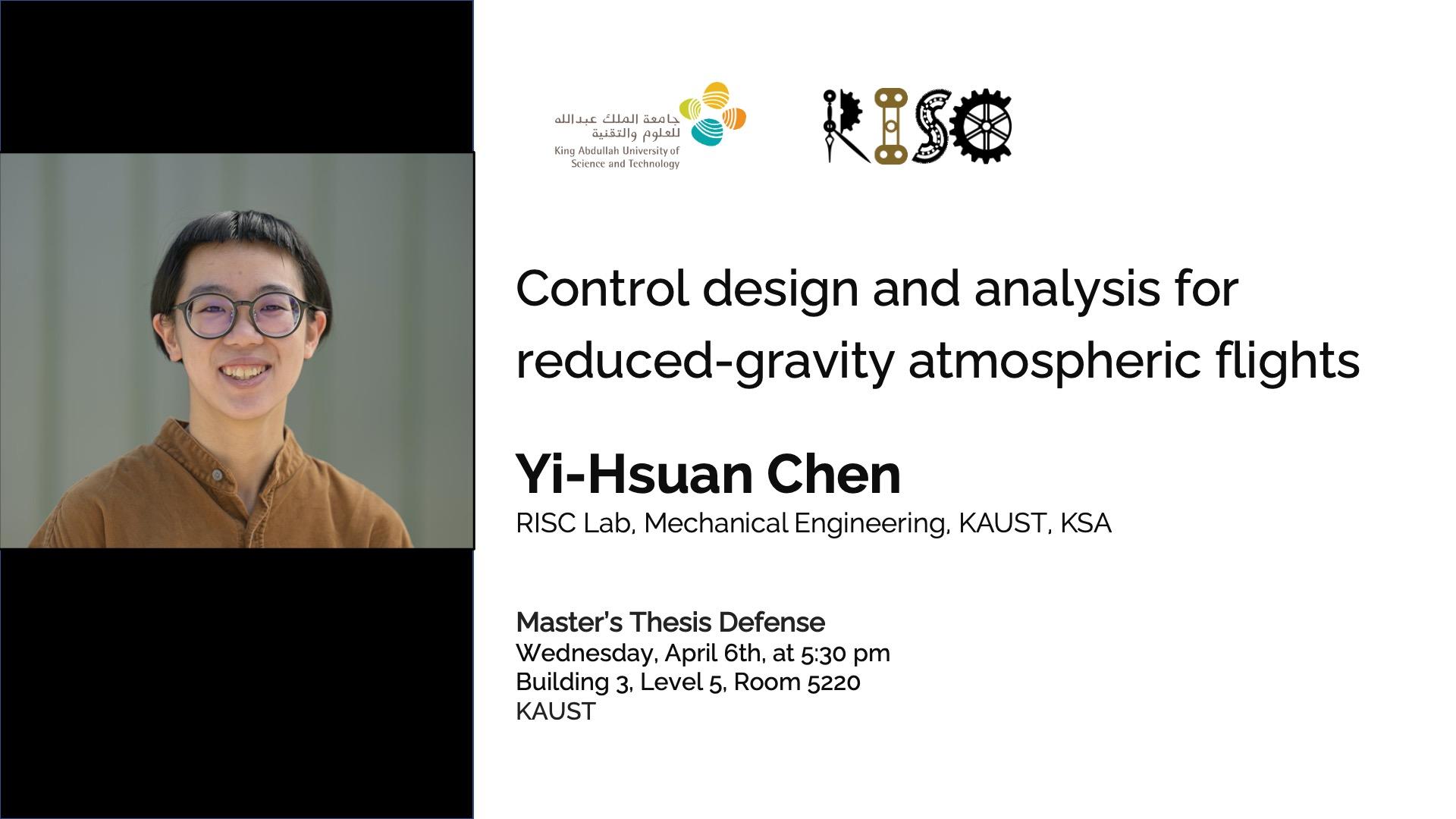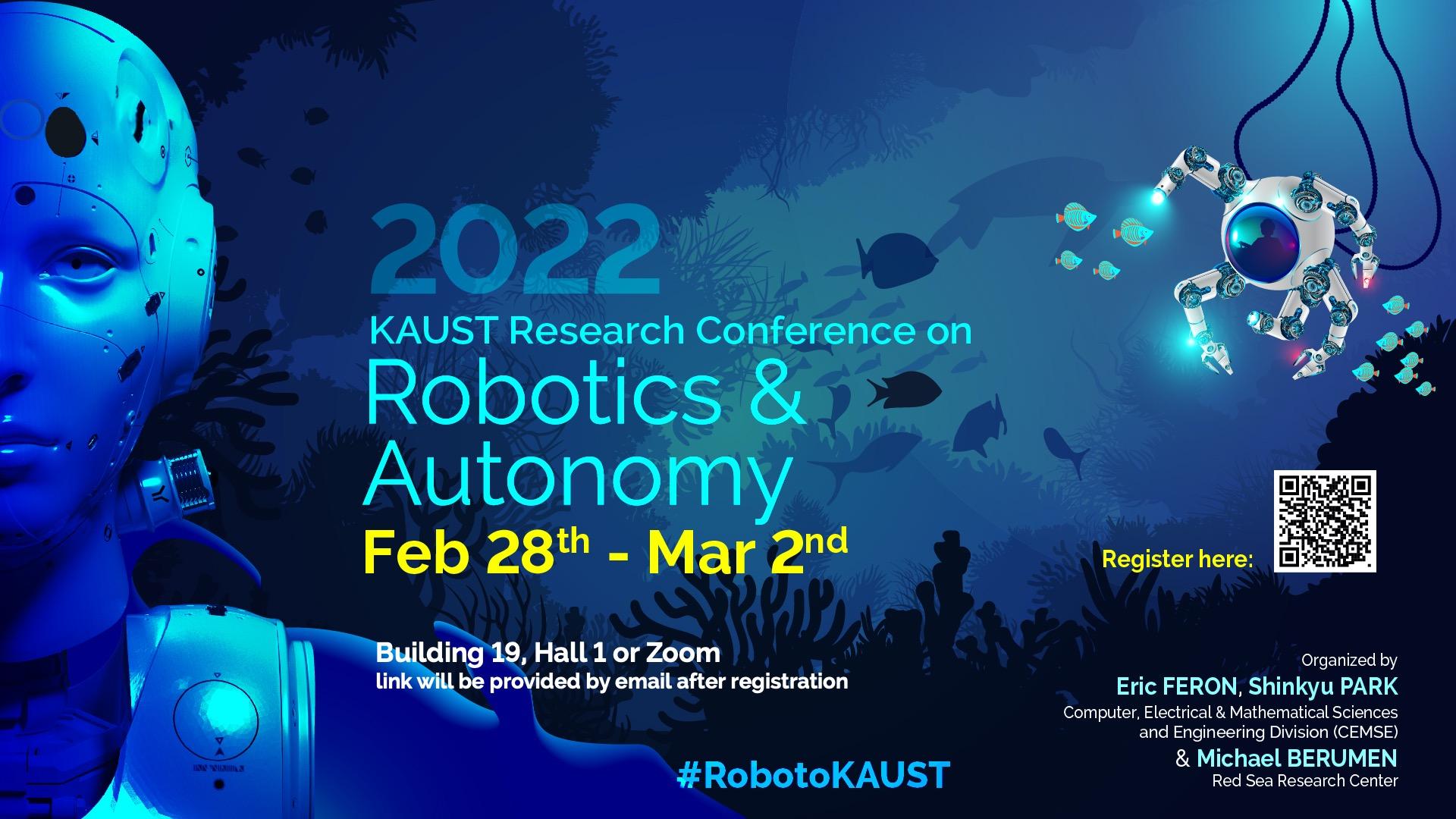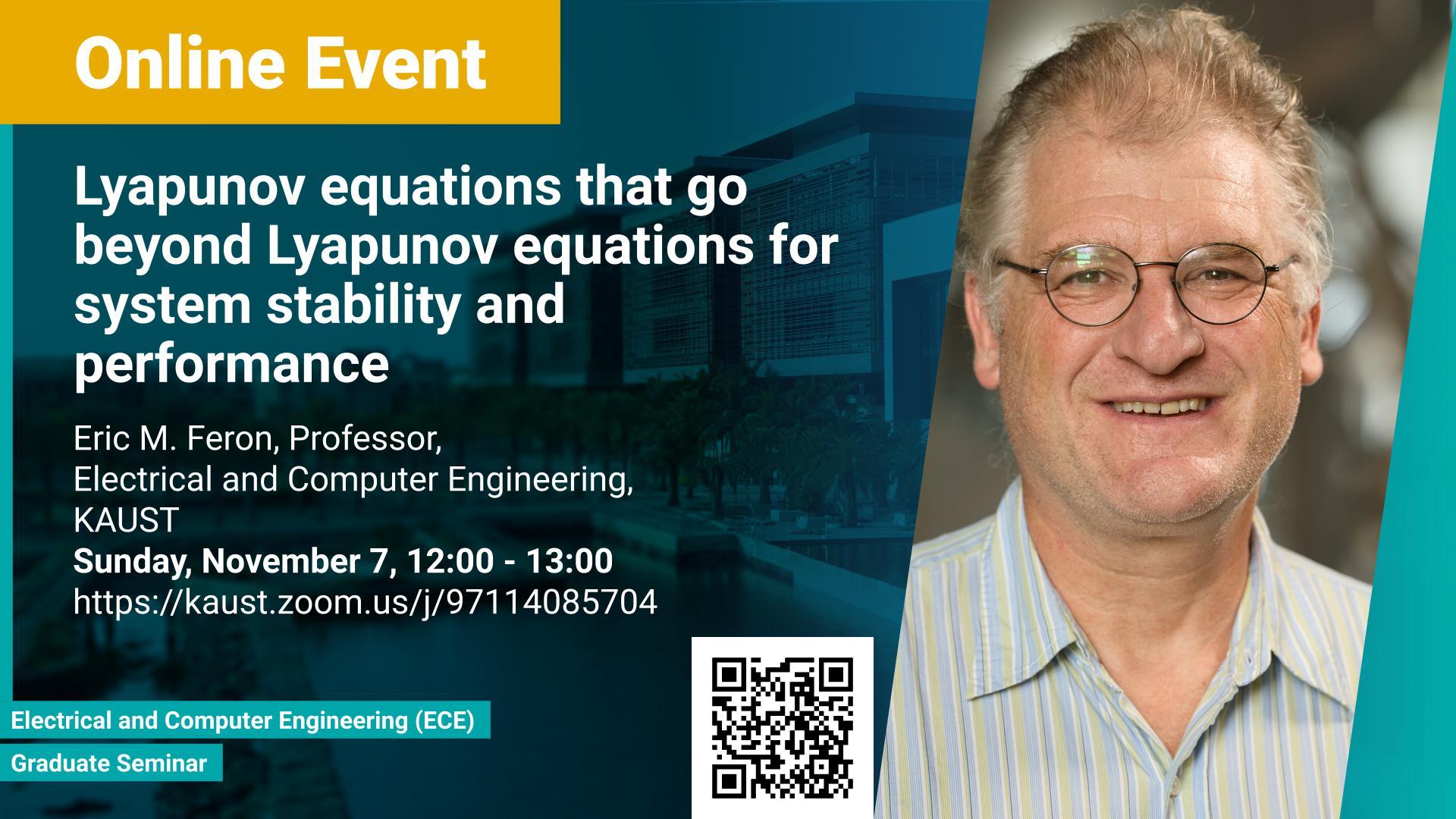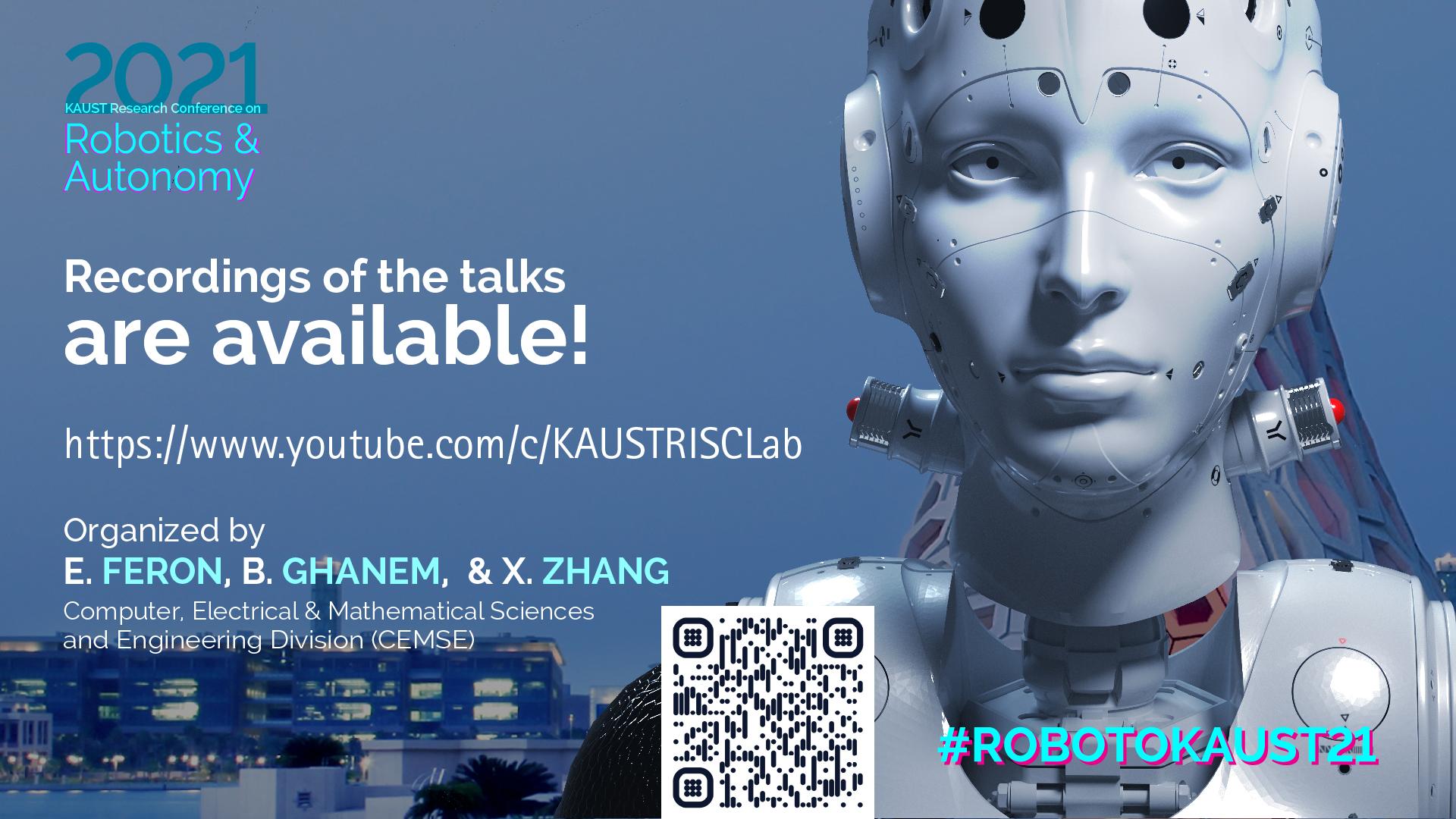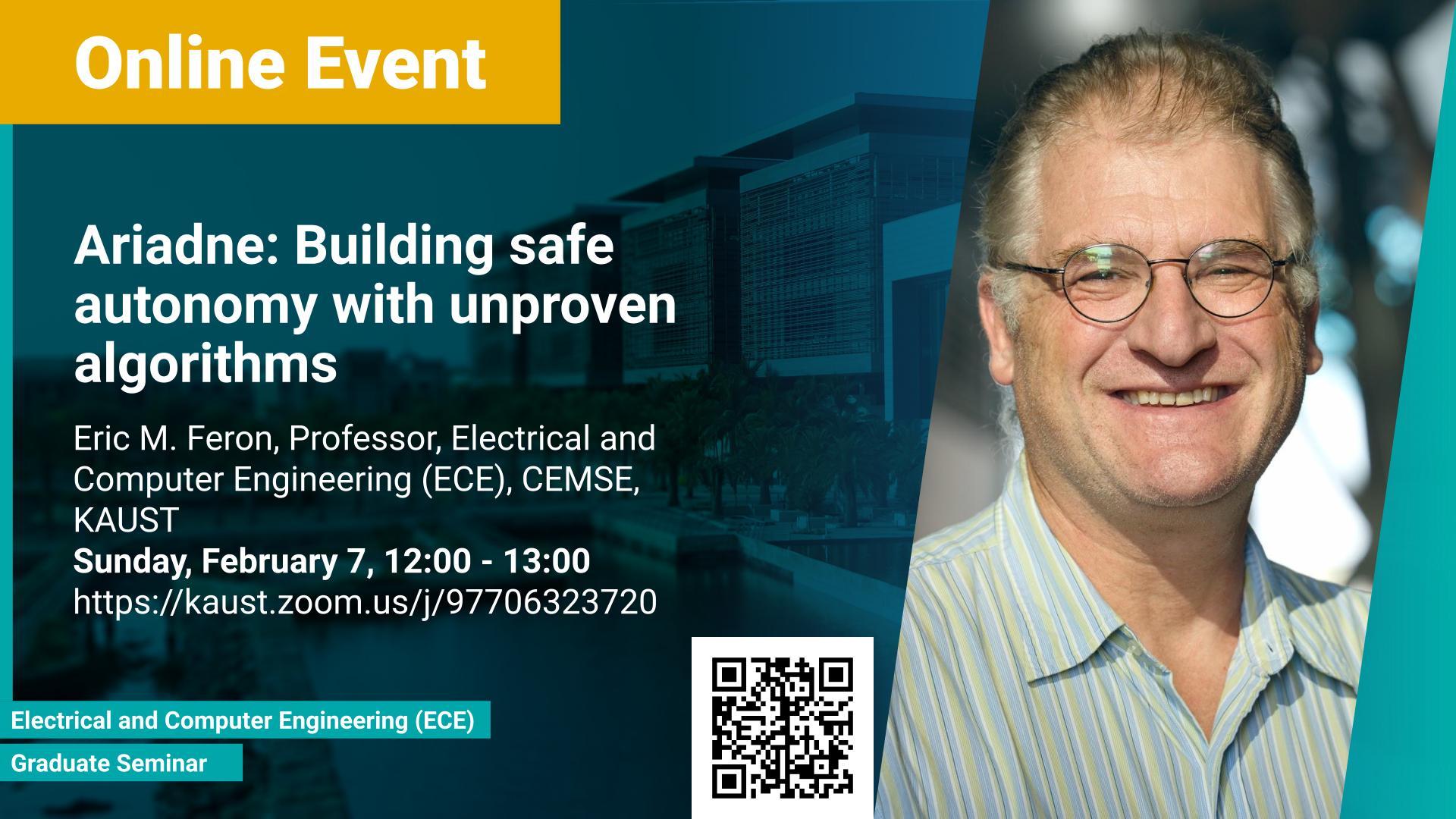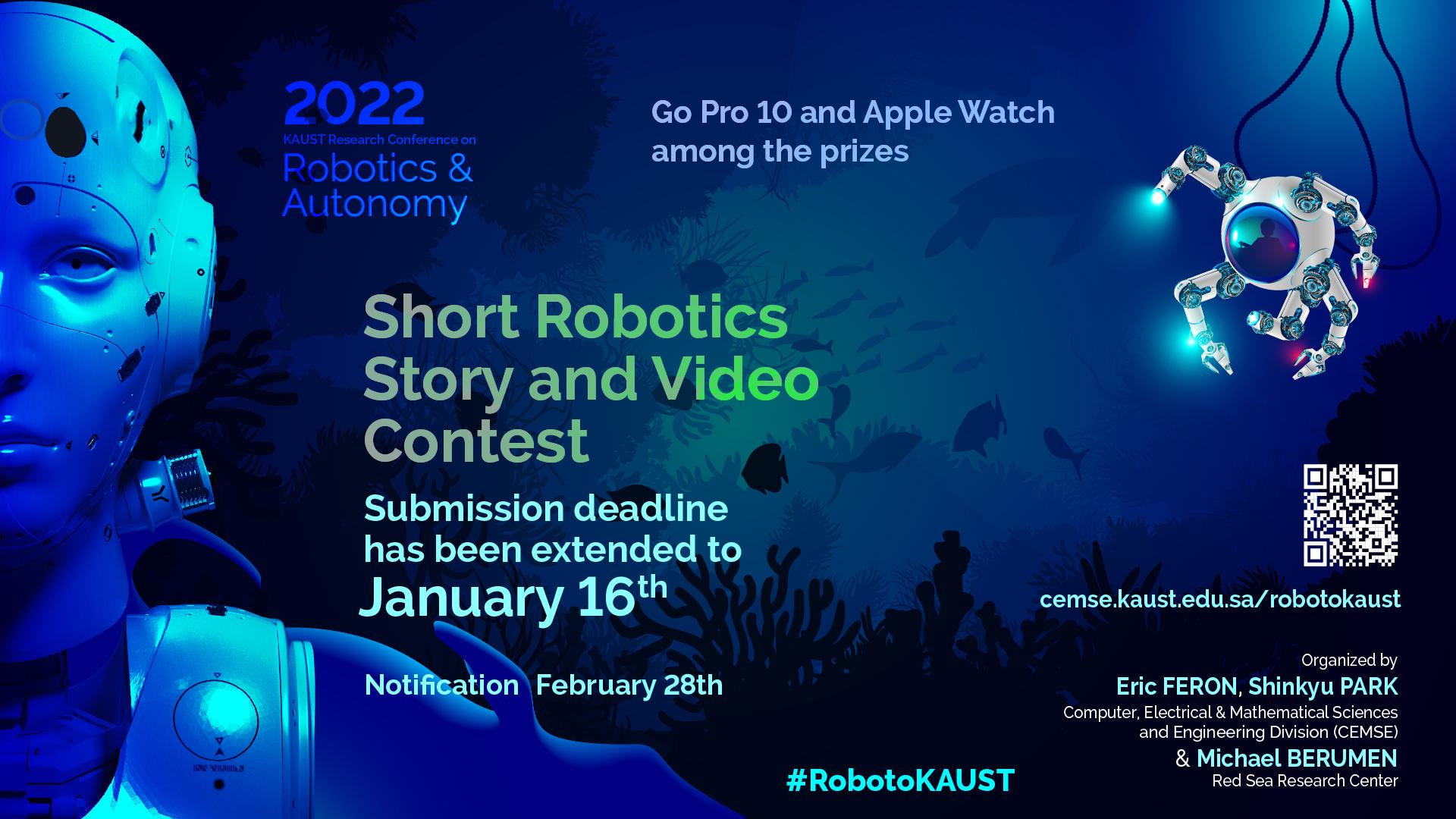MS Student,
Mechanical Engineering
Wednesday, April 06, 2022, 17:30
- 18:30
Building 3, Level 5, Room 5220
Contact Person
Master's Thesis Defense
"Control design and analysis for reduced-gravity atmospheric flights."
Professor,
Electrical and Computer Engineering
Monday, February 28, 2022, 08:00
- 20:00
B19, H1
Contact Person
KAUST Robotics, Intelligent Systems and Control Lab (RISC Lab) will host the KAUST Research Conference on Robotics and Autonomy 2022 (#RobotoKAUST) from February 28 until March 2, 2022. The conference will address the most recent trends of robotics application in a range of disciplines. To attend RobotoKAUST Gala, please, read more about the event and follow the event registration instructions.
Professor,
Electrical and Computer Engineering
Monday, January 17, 2022, 15:00
- 16:00
KAUST
Contact Person
Bio
Eric Feron, professor of Electrical Engineering at King Abdullah University of Science an
Professor,
Electrical and Computer Engineering
Sunday, November 07, 2021, 12:00
- 13:00
KAUST
Contact Person
Lyapunov's stability theory, which was formulated around 1892, presents itself as a watershed event in the study of dynamical systems.
Tuesday, June 15, 2021, 11:50
- 12:50
https://cemse.kaust.edu.sa/risc
Contact Person
The recordings of the talks from the KAUST Research Conference on Robotics and Autonomy 2021 are available!
Please check our website https://cemse.kaust.edu.sa/risc/robotokaust21.
To subscribe to RISC Lab YouTube Channel, please visit: https://www.youtube.com/c/KAUSTRISCLab
Professor,
Electrical and Computer Engineering
Sunday, February 07, 2021, 12:00
- 13:00
KAUST
With the advent of increasingly intelligent algorithms, robots are capable of planning and performing increasingly challenging and creative tasks. Safety, however, remains an essential requirement on robotic behaviors. It is also a property that is hard or impossible to prove for virtually all intelligent algorithms of practical value. Ariadne is a model-based paradigm that enables the safe operation of many robotic systems, even though the algorithms involved with the operation may not be verifiable. Ariadne, or "plan B" engineering, will be illustrated in various current Robotics contexts derived from Ariadne's own Greek mythology, railroad systems, nuclear energy production, air transportation, and others.
Prof. Eric Feron, Electrical and Computer Engineering
Wednesday, January 06, 2021, 17:00
- 17:00
KAUST
Submission deadline has been extended to January 16th. Notification: February 28, 2022.
Following on from last year’s success, the KAUST RISC Lab is back with a brand new story contest, the RobotoKAUST: Short Robotics Story and Video Contest 2022. The contest is open to children, teenagers (TKS G1- G12 level) and adults.
